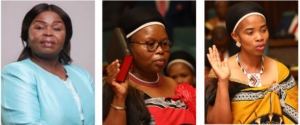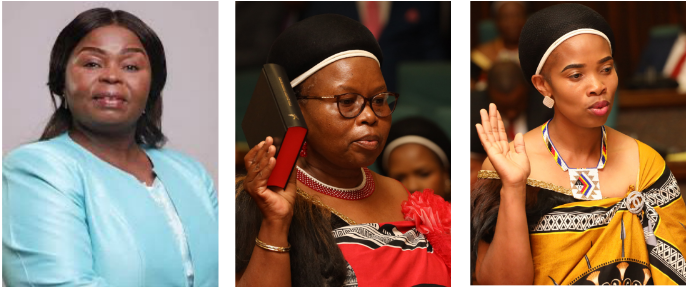
By Bahle Gama
THE election of women Members of Parliament (MP) to parliament has created a spotlight on them as expectations of the roles they are to play increase.
These are mainly from women and youth organizations in the country. During the general elections, eight women were elected to Parliament in the respective constituencies in the country. Four others were elected by His Majesty King Mswati III raising them to a total of 12 women MPs.
On October 6, they were among the 69 MPs who were sworn in at parliament where they took the oath of allegiance. The election of women into parliament is one of the main issues that were encouraged by Their Majesties along with different organisations countrywide.
ALSO READ: 12th Parliament to be dominated by novices
One of these is the Swaziland Action Group Against Abuse (SWAGAA), whose Director Nonhlanhla Dlamini said more women needed to get into parliament this year.
She disclosed that the numbers had increased from 3 per cent in 2018 to 14 per cent in 2023.
Dlamini said women in parliament will play a role in advocating child, youth, and women-related matters.
“Not only that, we need them to be fully active in participation of women legislatures, equal to men because it is not just a goal in itself, but central to building and sustaining democracies,” she said. The director said the equal presence of women, their leadership, and their perspective in parliaments is essential to ensure greater responsiveness to citizens’ needs.

She said female legislators belonging to various backgrounds can, therefore, bring a wide array of issues to the table for consideration and propose solutions accordingly. “Furthermore, any democratic system benefits from having people from diverse backgrounds and life experiences represented in its political institutions,” Dlamini said.
She said it enables to draw on the full array of capacity and skills in the population in shaping policies for the advancement of all. Dlamini said the broad representation of women in parliament has an enormous impact on what issues are raised and how policies are shaped.
“It also creates room to reform and revise discriminatory laws against girls and women,” she said.
According to a UN report, there are more women legislators than ever before globally. Over 20 years the proportion across the globe reportedly increased from 13 per cent in 2000 to 25 per cent in 2020.
Some regions have experienced greater gains, including Africa where the number of women legislators increased from 11 per cent to 24 per cent. The Arab states, too, have reportedly witnessed a significant increase, from 3 per cent to 17 per cent.


